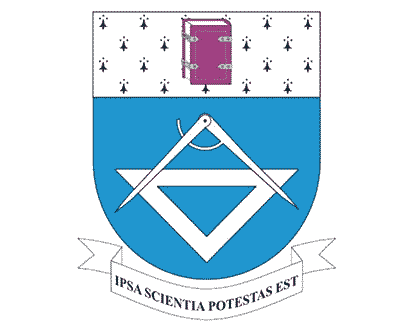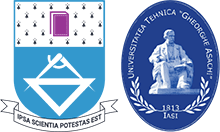The Fourth Edition of the History of Learning and Technical Science Symposium has been organized during the Days of the “Gheorghe Asachi” Technical University of Iasi on Friday, the 16th of November, beginning with 9 o`clock.
The series of speeches started with PH.D Prof. Eng. Neculai Eugen Seghedin, the vice-rector of the didactic activity. He stated that the event has been organized due to “a group of people passionate by the history of technology. Everybody feels the need to prove that the discipline they teach does not go to nothingness. Everybody feels the need to prove that those theories, concepts and phenomena they operate with, do not belong to a spontaneous generation. Everybody has the tendency to prove that each discipline they teach is based on elements which have passed the test of time.” Moreover, the vice-rector also added that “there is a natural tendency to humanize those technical sciences which are generally more sterile. If other disciplines from different fields are closer to the soul, to the human body, technology is not so easy to assimilate”.
The Assistant Professor Doctor Engineer Mihai Dorin chaired the papers of the symposium, the first one being presented by PH.D Prof. Eng. Florian Statescu, dean of the Faculty of Hydrotechnical Engineering, Geodesy and Environmental Engineering of Iasi. He reminded the audience that the modern hydrotechnical educational system at the “Polytechnic” University is already 50 years old, moment which has been celebrated through an International Symposium entitled “Accomplishments and Perspectives in Hydrotechnics, Geodesy and Environmental Engineering”, which took place in October, this year. In his presentation, the Dean mentioned the educational offers of the institution from the very beginning up to the present moment, as well as the evolution in the number of the graduates and the results of research in the field.” There has been a lot of concern for the creative side of technology, fact which has been materialised into over 255 patents and attendance to the the international salon of Research, Innovation and Technological Transfer.
The Virtual Tour of Petru Poni Museum
PH.D Eng. Monica Nanescu, representative of the Science and Technology Museum of Iasi has accomplished a virtual tour of the Memorial Museum “Poni-Cernatescu”, mentioning important figures of the academic educational system in chemistry. Among the figures mentioned there were the following: Anastasie Obregia, Cristofor Simionescu or Radu Cernătescu. The rooms of Kogalniceanu`s house which have been turned into a museum have a special cultural vibrant importance. It is a house of historical importance since it had been visited by important personalities such as Nicolae Iorga , A.D. Xenopol, Titu Maiorescu or Mihai Eminescu”, Monica Nanescu continued. At the basement, there is a mine where different minerals are on disply, and the main rooms keep part of the original furniture typical of that period, trying to restore the specific ambience of the 19th century. Oana Florescu presented the laboratory where professor Petru Poni used to carry out his tests, continuing the previous discussion of PH.D Eng. Monica Nanaescu.
Only Positive Feedback for the Romanian System of Education
The next paper described a history of the Romanian Technical System of Education, presented by Lecturer PH.D Gabriel Asandului, followed by PH.D prof. Eng. Nicolae Taranu who mentioned the accomplishments in research and education at the Faculty of Civil Engineering and Installations. PH.D prof. Eng. Mihail Voicu, member of The Romanian Academy – The Subsidiary of Iasi presented the paper entitled “The Long Evolution through Inventions towards the Conceptualisation of the reaction principle (feedback)”.
The other papers of the Symposium talked about experimental research in the field of seismic engineering, the past of The School of Architecture from Iasi or about the system of education in mechanic engineering from Iasi.
In order to find out about the entire list with the papaers, download the folder of the symposium.
Author: Cătălina Dobroviceanu



